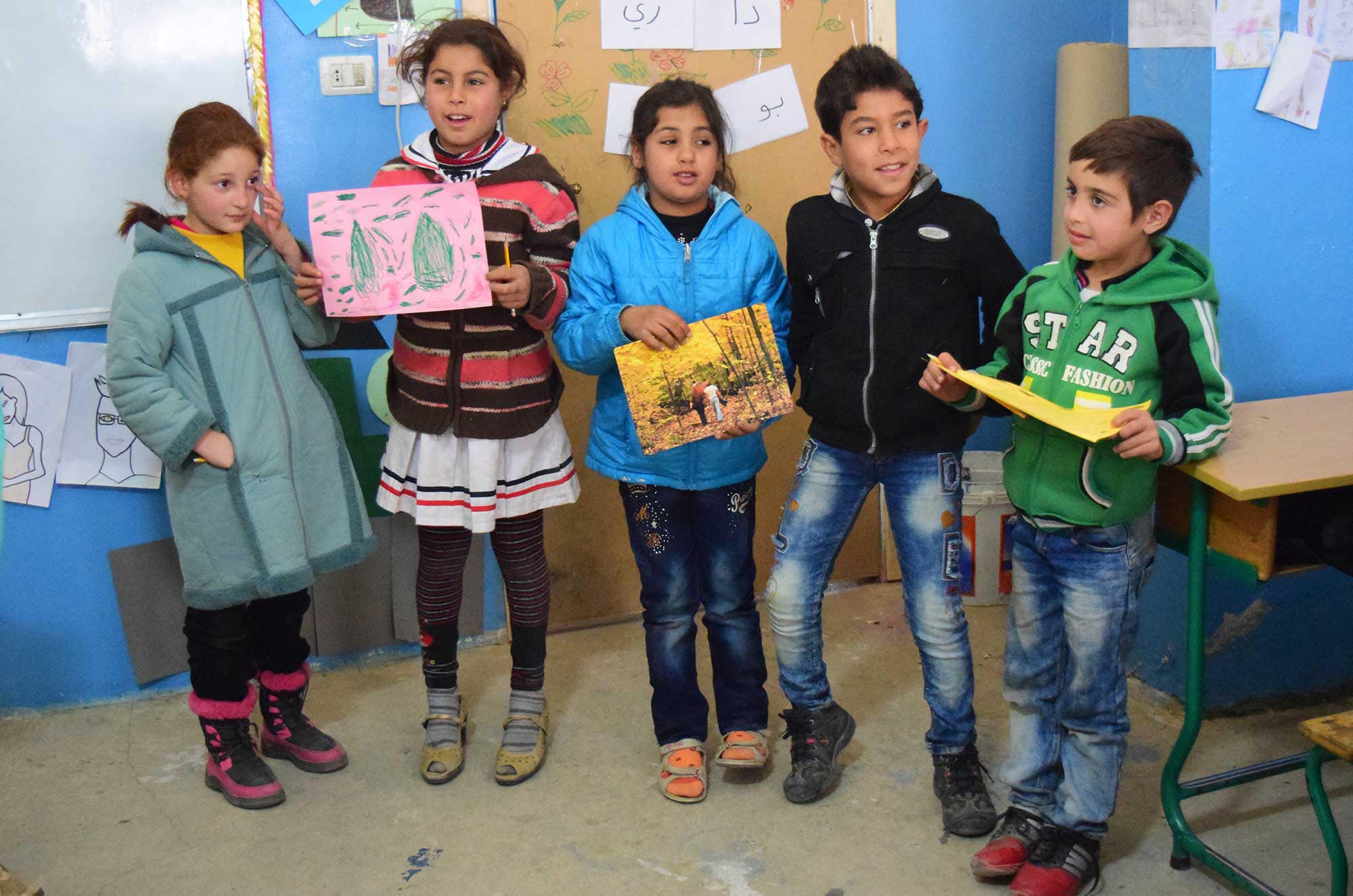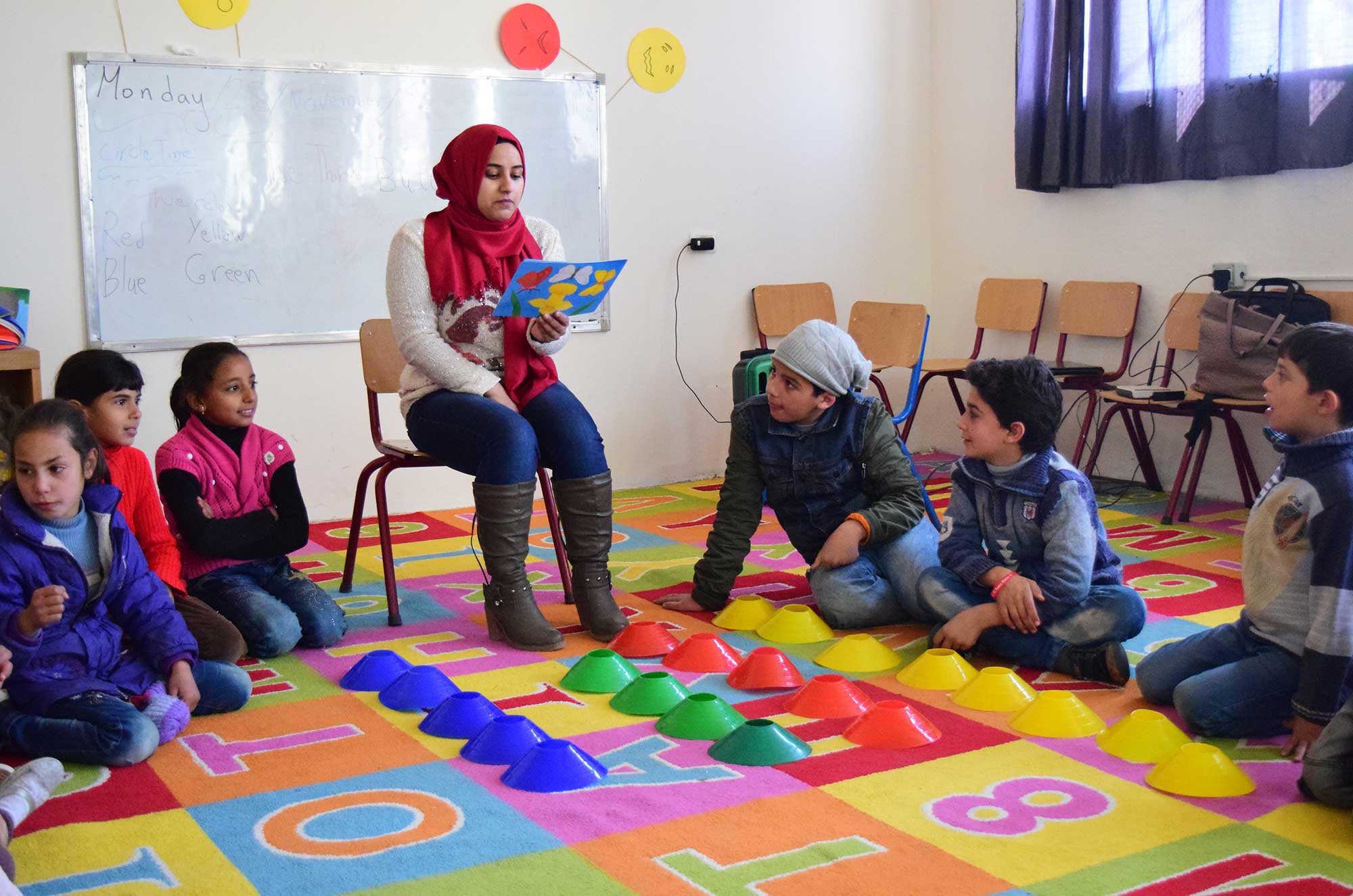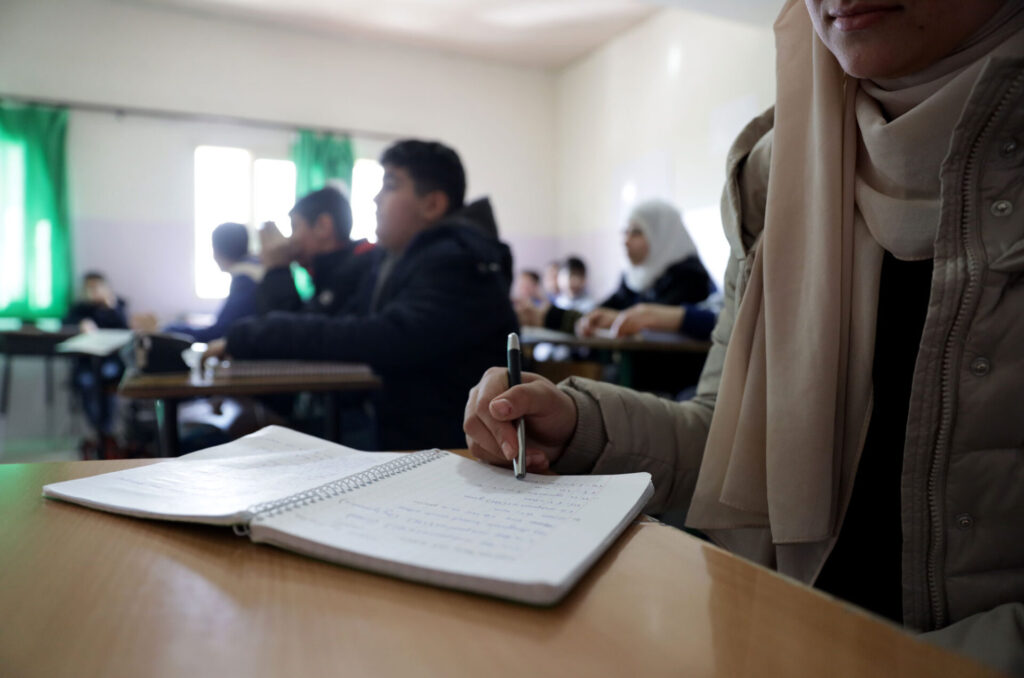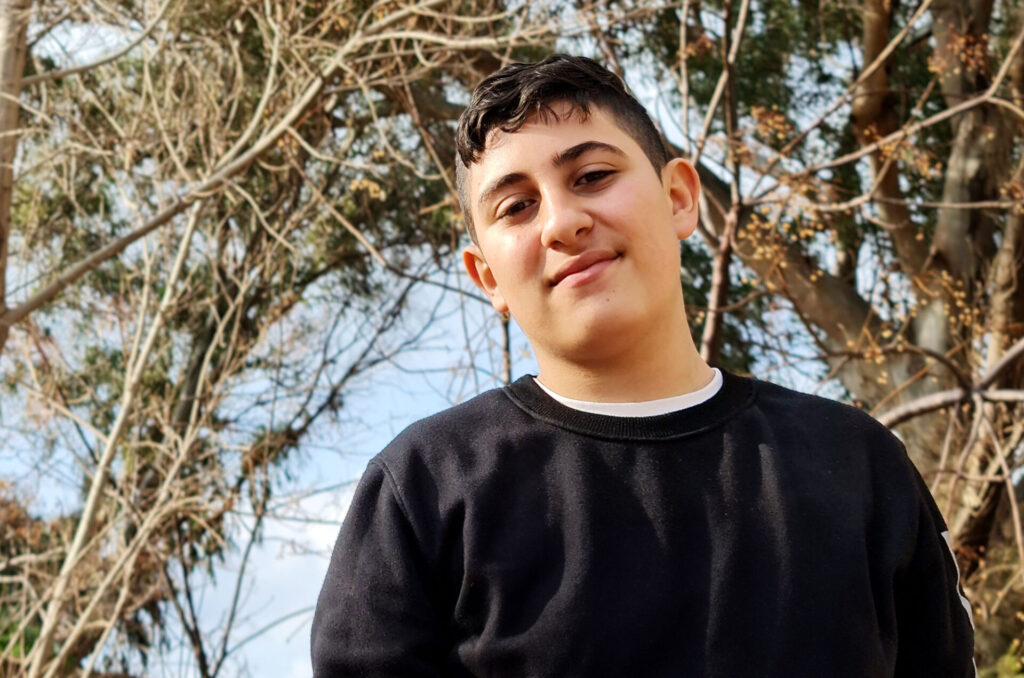Jan, 2017
In Lebanon, more than half of all school-aged Syrian refugees are not registered in the formal education system. That’s about 250,000 out-of-school youths.
Several factors have contributed to this education crisis. The Lebanese school curriculum is different from that in Syria, and classes are usually taught in English or French. Syrian refugee education also lags because many families struggle to afford tuition. They often live in informal tented settlements, and the instability of their home lives compounds the problem.
In response, several schools and community organizations offer non-formal educational courses for Syrian children. One of those is the Jusoor School for Syrian refugees. Three Jusoor branches operate in Lebanon— two in the Bekaa Valley and one in Beirut. The biggest, located in Jib Jannine, West Bekaa, was established in April 2014.


Picture Books Bring Learning to Life
Najwa is a five-year-old kindergartener at Jusoor. She is now learning about the four seasons with the help of a richly illustrated book. “I love the spring season, because that’s when flowers blossom,” she said.
The book is one of the 5,000 educational items donated by the International Book Bank (IBB). Jusoor received the shipment through Anera, along with teacher training materials. These books and supplies will serve more than 1,000 Syrian refugee children attending the school, including older students in Anera’s basic literacy and math courses.
The shipment included various textbooks, fictional stories and resources. For science class, children learned about the four seasons with picture cards. In language tutoring sessions, teachers now use interesting and high-quality books to aid in instruction.
At-Risk Syrian Refugee Youth Need Fun Learning Activities
“Most students here live in unstable conditions,” said Izdihar Omar, the administrator of the Jusoor School Jib Jannine. “Many are residents of nearby tented settlements, and are at risk of dropping out to work and support their families, mainly by doing agricultural work,” she added.
Diverse, informative and aesthetically pleasing educational tools are a necessity for keeping children in the classroom. “It’s these resources that allow for interactive activities. Given the poverty these students live in, they need these types of fun learning activities,” Izdihar said.
The IBB shipment was distributed to various partner centers serving underprivileged students in tented settlements, Palestinian refugee camps and poor rural communities in Lebanon.






